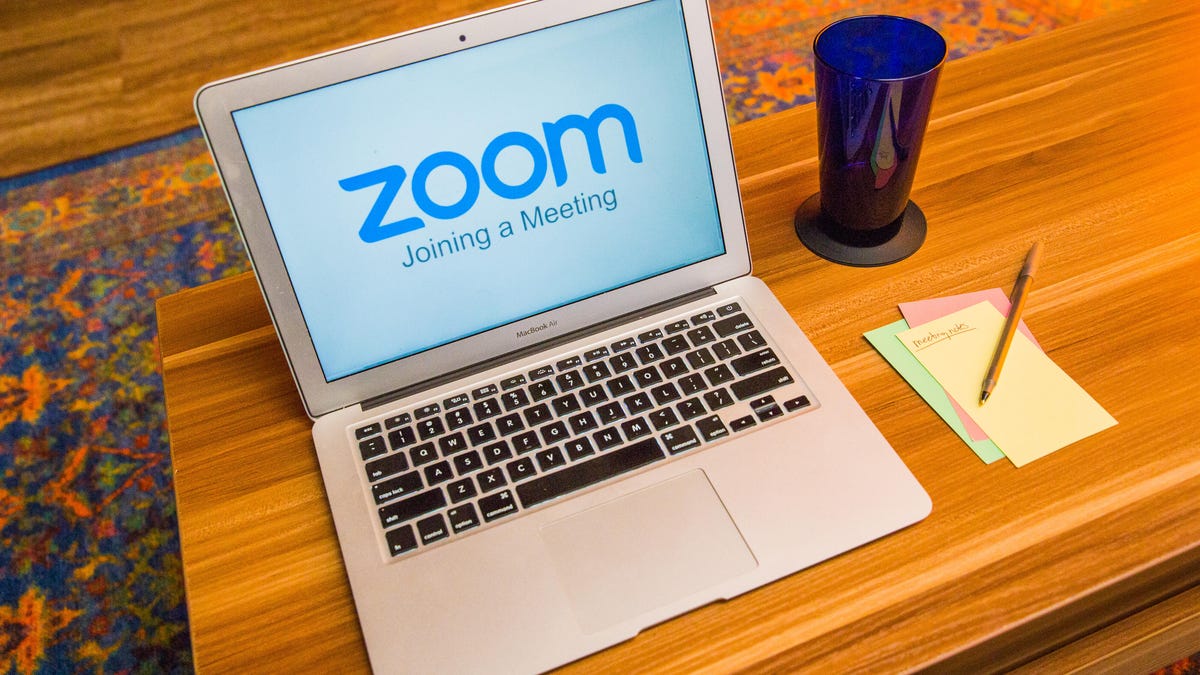 Why You Can Trust CNET
Why You Can Trust CNET Fast Internet Download Speeds Aren't the Only Thing That Matters. Here's Why
It's easy to fixate on download speeds as a sign of a powerful home internet connection. Turns out there's more to the story.

You know your upload speed is poor if your Zoom meetings stall or freeze.
Everyone wants fast internet speeds. That often means fast internet download speeds, but your upload speeds deserve some love and recognition as well. After all, you probably rely on them every day.
The information highway isn't a one-way street. It's more like a four-lane, busy and bustling freeway on one side (downloads) and a two-lane, lightly-trafficked road on the other (uploads). Though that road is certainly less traveled, you'd have a hard time getting around online if it shut down.
So what do you use those upload speeds for? And what's a good upload speed for your home? You'll find the answers below, but I'll go ahead and say that you'll want faster upload speeds than what the FCC qualifies as "broadband." (For more Wi-Fi tips, check out the best spot to put your router to speed up your internet, and our picks for the best Wi-Fi routers, the best mesh routers and the best Wi-Fi extenders.
Locating local internet providers
Yes, download speeds dominate our internet use
Just about everything we use the internet for relies on download speeds. You probably don't think about it when you're streaming the latest House of the Dragon episode or shopping online for a new iPhone case, but that activity involves downloading data from the internet.
What determines how quickly and easily you can download that data -- as in, how good the streaming quality is, how fast the webpage and images load -- is your download speeds.
Locating local internet providers
The faster your speed, the better your experience is likely to be. Speeds of 100Mbps and higher are often sufficient download speeds, but what constitutes a "good" download speed will vary for every household and the number of connected devices.
You can do a lot of downloading as you use the new iPhone 14, but uploading is important, too.
But fast internet upload speeds will come in handy every day
Now, I'd bet you really don't think about it when you're posting the seventh video of your cat to Instagram today (keep 'em coming!), or when you're logged into Zoom for a meeting, but both of these everyday activities involve uploading data to the internet.
Also, consider this: When you search for House of the Dragon on HBO Max, you are entering data and sending it to the internet -- that's an upload. When you type in "new iPhone case" in the search bar and hit Enter, you're uploading data. When someone "likes" your cat video (it's possible it was me), they are uploading data. Granted, you don't need terribly fast upload speeds to do this, but you're using the upload side of your connection nonetheless.
Here are some other ways we make use of upload speeds:
- Video chatting on Zoom, Skype, FaceTime, etc.
- Gaming online
- Submitting work or homework, and working and learning from home in general
- Voice over IP calling
- Posting to social media
What determines how quickly and easily you can perform these tasks? You guessed it: your upload speeds. When it comes to your upload speeds, again, faster is better, but you can get by with upload speeds that are slower than your download speed.
The FCC says upload speeds of 3Mbps is "broadband" internet
The FCC considers any upload speed of 3Mbps or higher as "broadband." However, the FCC set this speed threshold (with its broadband download speed of 25Mbps) back in 2015 and has since received bipartisan congressional pressure to raise the bar on what is officially considered broadband.
Still, the FCC standard of 3Mbps is enough on paper, albeit not by much, to meet most of the minimum requirements for applications such as Skype and Zoom. Skype recommends a minimum of 100Kbps for calling and 512Kbps for group video chats of seven or more people. Zoom is a bit more demanding, requiring a minimum upload speed of 600Kbps for 1:1 video calling and 3.8Mbps for 1080p HD video group calling.
Remember that these are minimum speed requirements for a single device. As such, you're likely to benefit from much faster speeds.
Aim for upload speeds of 10Mbps or higher
For average home internet use over a Wi-Fi connection and 10 or so devices -- computers, phones, gaming consoles, smart cameras, even smart TVs will tap into your upload speeds -- I'd recommend upload speeds of at least 10Mbps. Faster would be even more ideal, but upload speeds of 10Mbps should comfortably support most tasks that require uploading data, including video calls in HD quality and gaming online.
How to find out your internet upload speed
A good speed test will give you an idea of what your upload speeds are. Run a few speed tests using different devices in different locations throughout your home to get an overall gauge of your connection's upload speed performance.
If your upload speeds are lower than you think they should be, check out our list of common issues with upload speed performance and how to fix them. And for more tips on how to improve not only your internet connection but for everything that keeps your home running, be sure to browse our CNET Home Tips section.

